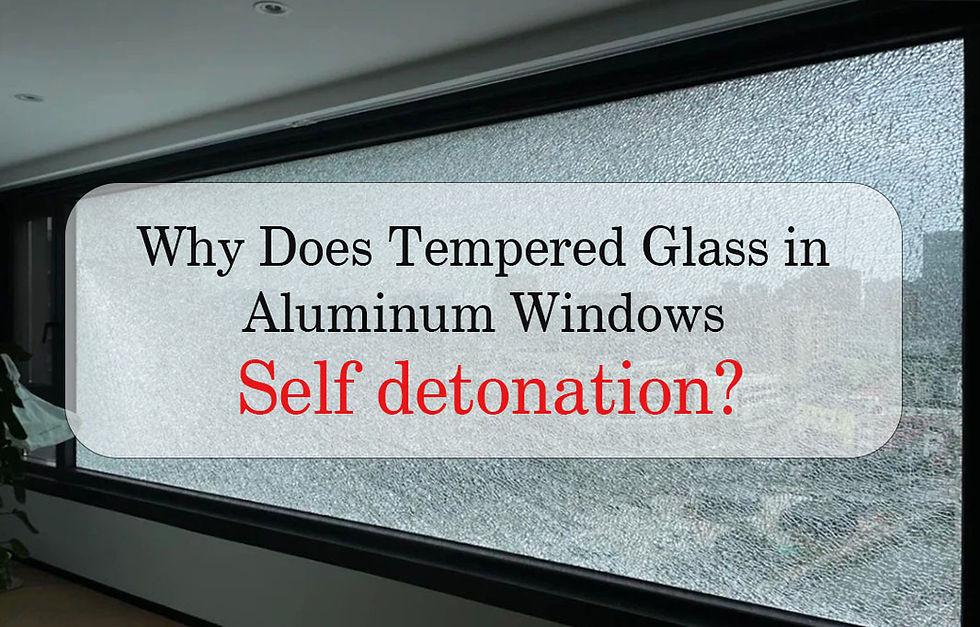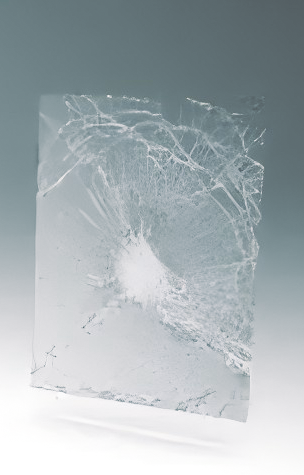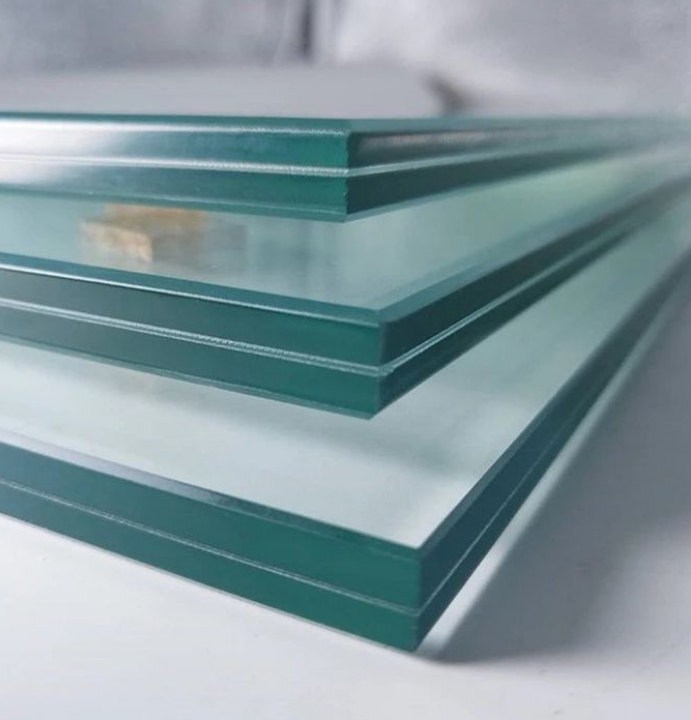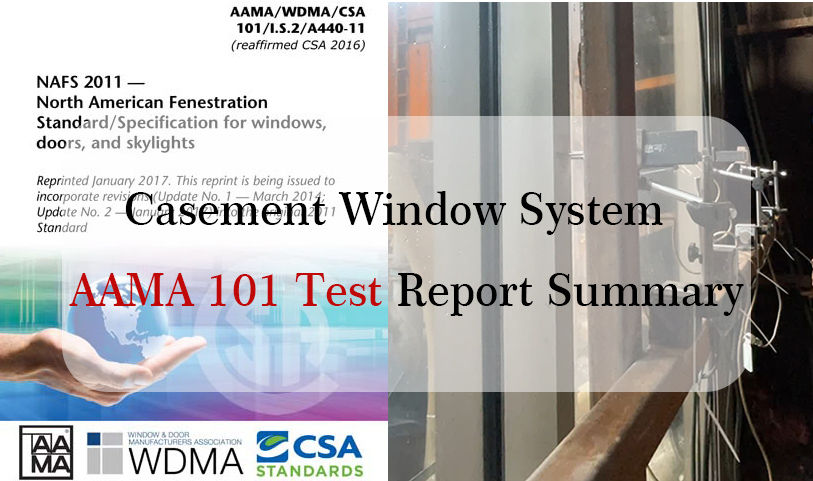Why Does Tempered Glass in Aluminum Windows Self detonation?
- BEATUS
- Dec 17, 2024
- 3 min read
Updated: Dec 19, 2024

Tempered glass is often chosen for aluminum windows due to its durability and strength. However, one issue that occasionally arises is glass self detonation or spontaneous shattering. While tempered glass is generally much stronger than regular glass, it is not immune to certain conditions that can lead to glass failure. Here’s a closer look at why this happens and what can be done to prevent it.
1. Internal Stresses and Manufacturing Defects

Tempered glass is created by heating the glass to a high temperature and then rapidly cooling it. This process increases the glass's strength, but it also creates internal stresses. If there are imperfections or defects in the glass—such as tiny chips, cracks, or inconsistencies from the manufacturing process—these stresses can cause the glass to break unexpectedly. This type of failure is often called “spontaneous shattering,” where the glass breaks without any apparent external impact.
2. Nickel Sulfide Inclusions
One of the most common causes of tempered glass self-shattering is the presence of nickel sulfide inclusions. These microscopic impurities can expand over time, causing the glass to crack and shatter. This issue is typically not visible to the naked eye and may occur years after installation.
At Beatus, we ensure the highest glass quality by working with trusted manufacturers who follow strict quality control processes, minimizing the risk of such defects.
3. Thermal Stress
Glass is sensitive to temperature changes. Aluminum frames, being excellent conductors of heat, can transfer heat to the glass, leading to thermal stress. If one part of the glass heats up or cools down faster than another part (for example, if the glass is exposed to direct sunlight or if there’s a significant temperature difference inside and outside the building), the glass may crack. Even small temperature fluctuations can cause enough stress to lead to glass failure.
4. Improper Installation

Improper installation can also contribute to glass shattering. If the glass is not properly fitted into the aluminum frame or if the frame does not provide uniform support across the glass surface, localized stresses can occur. These stress points are vulnerable to breaking, especially under pressure from external forces like wind or impact.
5. External Impact and Environmental Factors
Although tempered glass is stronger than regular glass, it’s not invincible. External impacts, such as hail, heavy objects, or even the pressure from a strong windstorm, can cause cracks or chips in the glass. These imperfections might not cause immediate shattering but can weaken the glass structure, increasing the chances of it breaking later due to internal stresses or thermal fluctuation
How to Choose Glass to Prevent Spontaneous Shattering
1. Use of 3C Certified Tempered Glass
It’s crucial to select 3C certified tempered glass, as it ensures a high level of strength and durability. Tempered glass is known for its bending strength and resistance to impact, making it a reliable choice for aluminum windows.
2. Floor Height and Wind Pressure Performance
High-Rise Buildings (Higher Floors) | For Low Floors |
The higher the floor, the greater the wind pressure. For high-rise buildings, it’s necessary to choose thicker glass to withstand these increased pressures. | Wind pressure is lower on lower floors, so thinner glass is acceptable. However, even for lower floors, other factors such as sound insulation and thermal performance should still be considered. |
Customized Calculations: For residents in high-rise buildings, higher demands for waterproofing and sound insulation need to be addressed through careful calculations during the design phase.
3.Laminated Glass for Safety and Durability

Laminated glass consists of two or more glass layers with an interlayer film of organic polymer between them. The glass is specially treated under high temperature and pressure, bonding the layers together. In the event of breakage, the shards remain adhered to the film, preventing them from falling or causing injury.

4. High-Performance Polyester Film for Extra Protection
If laminated glass is not initially used, applying a high-performance polyester film on tempered glass can provide added safety. This film acts as a protective layer, preventing glass shards from scattering upon breakage. It helps reduce the risk of injury to both building occupants and people outside the building.



Comments